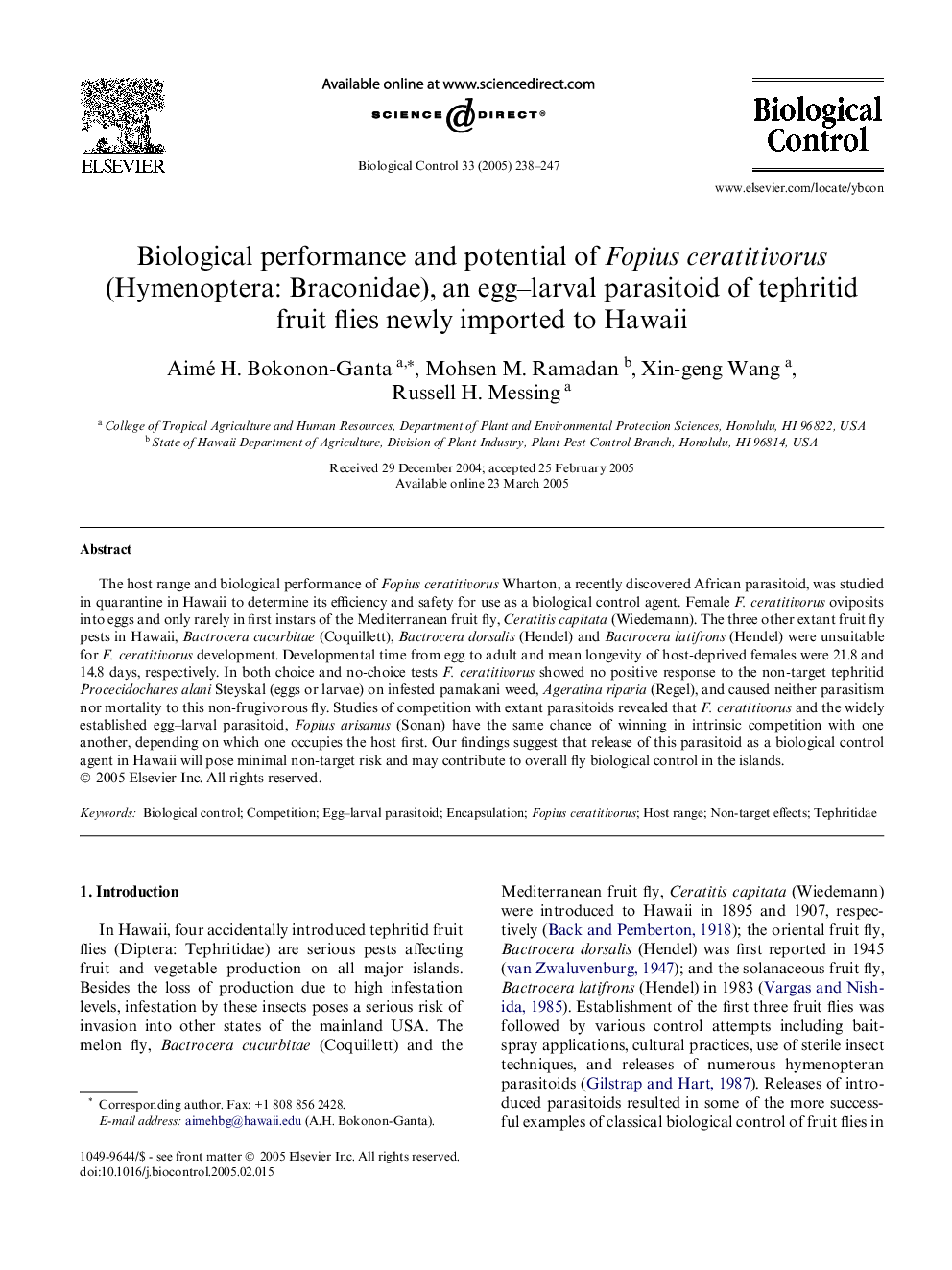| Article ID | Journal | Published Year | Pages | File Type |
|---|---|---|---|---|
| 9472029 | Biological Control | 2005 | 10 Pages |
Abstract
The host range and biological performance of Fopius ceratitivorus Wharton, a recently discovered African parasitoid, was studied in quarantine in Hawaii to determine its efficiency and safety for use as a biological control agent. Female F. ceratitivorus oviposits into eggs and only rarely in first instars of the Mediterranean fruit fly, Ceratitis capitata (Wiedemann). The three other extant fruit fly pests in Hawaii, Bactrocera cucurbitae (Coquillett), Bactrocera dorsalis (Hendel) and Bactrocera latifrons (Hendel) were unsuitable for F. ceratitivorus development. Developmental time from egg to adult and mean longevity of host-deprived females were 21.8 and 14.8 days, respectively. In both choice and no-choice tests F. ceratitivorus showed no positive response to the non-target tephritid Procecidochares alani Steyskal (eggs or larvae) on infested pamakani weed, Ageratina riparia (Regel), and caused neither parasitism nor mortality to this non-frugivorous fly. Studies of competition with extant parasitoids revealed that F. ceratitivorus and the widely established egg-larval parasitoid, Fopius arisanus (Sonan) have the same chance of winning in intrinsic competition with one another, depending on which one occupies the host first. Our findings suggest that release of this parasitoid as a biological control agent in Hawaii will pose minimal non-target risk and may contribute to overall fly biological control in the islands.
Keywords
Related Topics
Life Sciences
Agricultural and Biological Sciences
Agronomy and Crop Science
Authors
Aimé H. Bokonon-Ganta, Mohsen M. Ramadan, Xin-geng Wang, Russell H. Messing,
